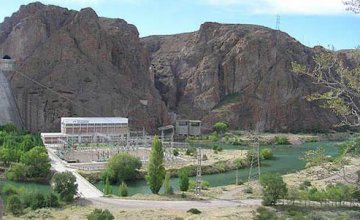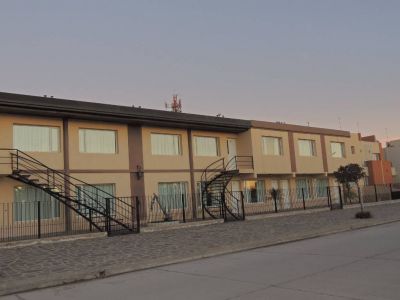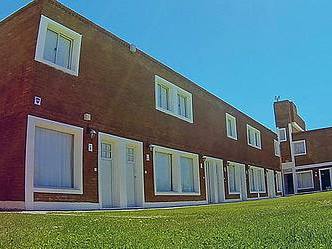Visit to Valle de los Altares
Leaving Rawson south of the Patagonian high plateau towards the west, there lies Valle de los Altares, a gorge of high walls that invites visitors to go on a journey back in time.
To reach Valle de los Altares (Altars Valley) from the City of Rawson, we took National Route 25 and traveled 301 kilometers through different districts that observed the harsh life endured by the first Welsh colonists who inhabited these lands and finally settled down in Trelew, Gaiman, Dolavon and Valle de los Mártires (Martyrs Valley). The road changes from winding to long straight stretches and passes by deep water bodies and strange rock formations that break with the scene of ample high plateaus. We understood that the valley was close when the rock formations that imitate giant altars began to come into sight, giving us incredible panoramic views of matchless natural beauty.
At Valle de los Altares, the high walls feature spectacular morphological characteristics that tempt visitors to compare them to everyday objects. These rocks made of sandstone present several reddish strips and are divided by the erosion caused by the water and the wind. Standing as megalithic natural monuments, they accompany the course of the Chubut River. Likewise, a rock painting site protected by the Provincial Department of culture boasts a native painting made with mineral pigment mixed with organic matter. It dates from the tenth century and occupies an area of 53 per 93 centimeters. After touring around the valley and taking countless photographs, we headed for the small hamlet where we found a restaurant, a coffee store and a gas station, where we enjoyed the varied local cuisine, including delicious sandwiches made with raw ham, cheese and home-baked bread. There is also a small handicrafts market where descendants of the Tehuelches, a native people that used to dwell in this area, sell different artifacts like arrow points or necklaces. Valle de los Altares is waiting to be discovered by travelers who enjoy non-conventional tourism. This is one of the most imposing natural monuments in the Province of Chubut.
Matías Castro Sahilices
Gentileza Elpatagonico.com
Contact of the excursion or tour
A.C.A. - Motel Los Altares
Ruta Nacional 25 km 321, Trelew, Chubut, Agentina
Phone: +54 280-4499003


























